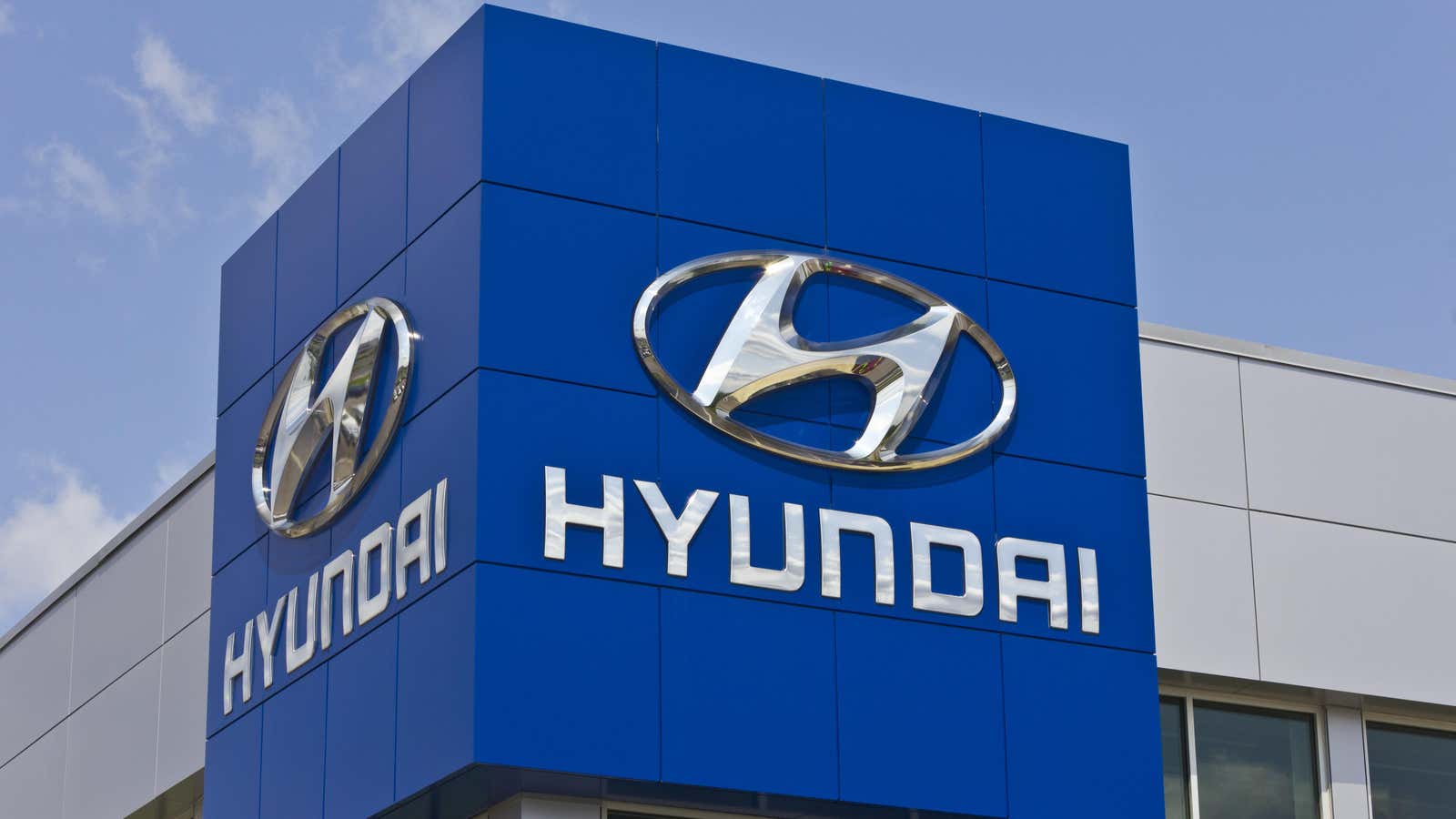These Hyundai Vehicles Are Being Recalled Due to Potentially Explosive Seat Belt Parts.

Seat belts basically have one job: to keep the people inside the car safe. Typically, this means drivers and passengers remain relatively still during a crash, but in light of Hyundai’s latest vehicle recall, we’re going to add “doesn’t explode” to our seat belt wishlist.
A total of 239,000 vehicles were affected by the recall. Here’s what you need to know.
How can seat belts explode?
When we think of parts of a car that could explode, seat belts don’t usually come to mind. So what’s going on here?
According to a notice released by the National Highway Traffic Safety Administration (NHTSA), the seat belts in the recalled vehicles were manufactured with a “pyrotechnic type” component that could fail during the crash, causing shrapnel to hit the driver and passengers:
The vehicles in question are equipped with pyrotechnic-type driver and passenger seat belt pretensioners, which may operate abnormally during an accident. The specific root cause has not yet been identified.
Hyundai is currently investigating the issue. As of May 24, three injuries were reported from exploding seat belts: two in the US and one in Singapore, according to the Associated Press .
Which Hyundai vehicles are subject to the recall?
This latest Hyundai recall expands and replaces the company’s three previous recalls and includes :
- Accents 2019-2022 (total about 61,000 cars)
- 2021-2023 Elantra (approximately 166,000 vehicles)
- 2021-2022 Elantra HEV (approximately 12,000 hybrid electric vehicles)
Even if your Hyundai vehicle was repaired as part of one of the previous recalls, NHTSA reports that you will have to return it to the dealership to fix the blown seat belt problem.
What to do if you are driving one of the recalled vehicles
Hyundai will notify owners of vehicles affected by the recall by mail no later than July 15 and provide instructions on how to repair their seat belts. This will require taking the car to the dealership where they will put a cap on the defective part to prevent it from exploding.
According to NHTSA , the fix will be free to owners of all affected vehicles, whether or not they are covered by Hyundai’s limited new vehicle warranty.
If you have any questions, call Hyundai Customer Service at 1-855-371-9460 at 229 or the NHTSA Vehicle Safety Helpline at 1-888-327-4236 or visit www.nhtsa .gov.